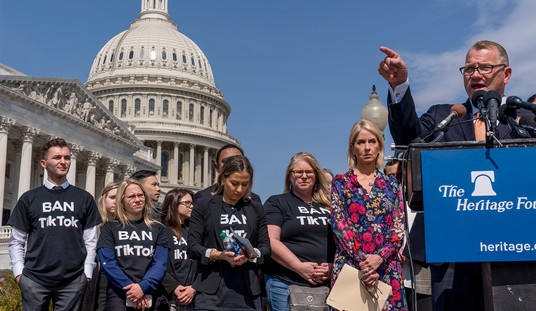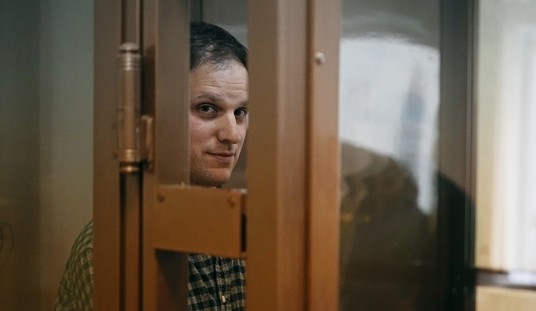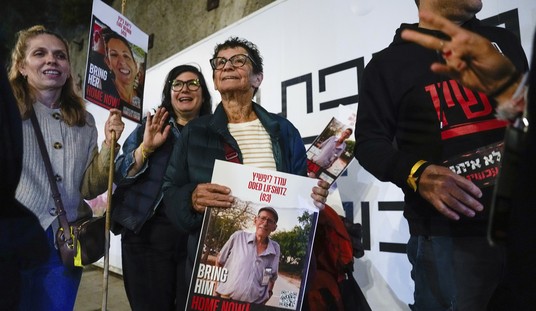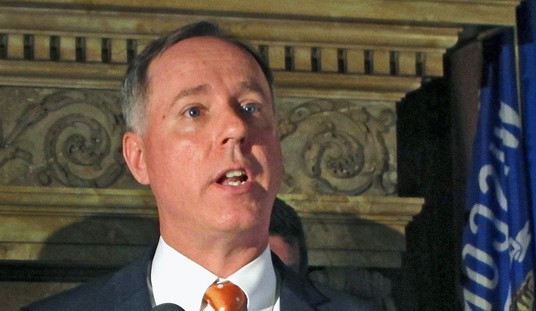Did Donald Trump tell the truth about Robert Mueller after all? Trump vehemently objected to Mueller’s appointment as special counsel in 2017, claiming that Mueller had interviewed to replace James Comey as FBI Director just days before the appointment by Rod Rosenstein. Mueller denied that claim, including during his testimony before Congress in July of last year.
Rep. Greg Steube (R-FL) made sure to get Mueller on the record on that point, and Mueller insisted that he’d never been in consideration for the job:
STEUBE: Thank you, Mr. Chair. Mr. Mueller, over here. Mr. Mueller did you indeed interview for the FBI director job one day before you were appointed as Special Counsel?
MUELLER: My understanding I was not applying for that job, I was asked to give my input on what it would take to do the job, which triggered the interview you’re talking about.
STEUBE: So you don’t recall on May 16th, 2017 that you interviewed with the president regarding the FBI director job?
MUELLER: I interviewed with the president and it was about…
STEUBE: Regarding the FBI director job?
MUELLER: …it was about the job and not about me applying for the job.
STEUBE: So your statement here today is that you didn’t interview to apply for the FBI director job?
MUELLER: That’s correct.
STEUBE: So it – did you tell the vice president that the FBI director position would be the one job that you would come back to – for?
MUELLER: I don’t recall that one.
STEUBE: You don’t recall that?
MUELLER: No.
Five months before this testimony had taken place, Judicial Watch had petitioned for the records surrounding Mueller’s May 16, 2017 interview at the White House. Late yesterday, they received those records, along with other records relating to other parts of Mueller’s special-counsel investigation. Lo and behold, those records contained an e-mail in which Rosenstein noted that Mueller had withdrawn his name from consideration for the FBI Director position on May 17, 2017:
Judicial Watch announced today that it received 47 pages of documents from the Department of Justice which includes a May 17, 2017, email documenting that Robert Mueller informed the Attorney General’s office he was withdrawing from consideration for director of the FBI.
This recently released email raises new questions about Mueller’s testimony to the House Judiciary Committee on July 24, 2019, where he said a May 16, 2017 interview with President Donald Trump was “not about me applying for the job” as FBI director. …
In the May 17, 2017, email former Deputy Attorney General Rosenstein writes to then-Assistant Attorney General Jody Hunt with the subject line: “Mueller” and states: “Withdrew from consideration for FBI director.”
Hunt responds: “[redacted] called this morning and also withdrew his name from consideration.”
On the same day, Rosenstein appointed Mueller special counsel for the Russia investigation.
The e-mail is terse, but its meaning is obvious:

If Mueller “withdrew from consideration for FBI director” on May 17, then he must have known he was under consideration for it on May 16. That means he wasn’t in the meeting that day as a consultant, as he testified under Steube’s questioning. It means he was there as a candidate for the position, even if that may not have been his intention. He was aware enough of it to withdraw from consideration.
That certainly explains why Trump was so incensed over Mueller’s appointment as special counsel. He had literally been interviewing Mueller for Comey’s job the day before, and then Mueller gets appointed to investigate why the job was vacant in the first place. That certainly looks like a conflict of interest, or at least too close for a special counsel appointment, which is supposed to be at least somewhat independent and objective. One has to wonder what happened in the interview, and whether it had any influence on how Mueller approached the case.
At the very least, that makes Mueller’s testimony erroneous. At worst, Mueller may have lied to Congress, but don’t hold your breath on that having any legal consequences. The House would have to vote for a criminal referral, and Nancy Pelosi isn’t about to let Trump off the hook for anything related to the Russiagate conspiracy theory, especially not before the election. Trump will have to just settle for some belated vindication on the special-counsel appointment, although the media will no doubt ensure that he celebrates it quietly.








Join the conversation as a VIP Member